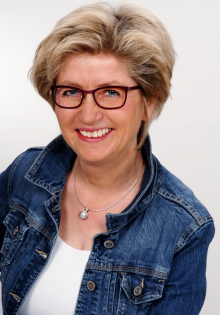New approaches to teacher training in NRW through research project “InDigO”
Open educational resources and learning communities are set to pave the way for the future of university teaching: A few weeks ago, ‘Open Resources Campus NRW’ (ORCA.nrw) – the North Rhine-Westphalian state portal for teaching and learning – was launched. This new portal provides quality-checked materials and support for digital teaching and learning at universities. In various funding lines set up by the state of North Rhine-Westphalia (NRW) and in co-operation with the Digital University NRW, content is currently in the process of being created in OER (Open Educational Resources) format, and will soon be available on the portal for users to download, use, modify and upload again in a new version. To investigate how this content can be integrated in education science, the collaborative project ‘Learning, Developing and Disseminating Inclusion and Digitalisation in OER Format’ (InDigO) is now underway at Paderborn University, taking teacher training in an innovative new direction. The initiative, led by Professor Petra Büker from the Paderborn Institute for Educational Research, Professor Gudrun Oevel from Paderborn University’s Information and Media Technologies Centre (IMT) and Professor Anna-Maria Kamin, educational researcher at Bielefeld University, is to be funded by the North Rhine-Westphalia Ministry of Culture and Science (MKW NRW) for the next two years, to the tune of approximately €1 million.
In co-operation with seven teacher training institutions in NRW and under the leadership of Paderborn University, the project aims to, for example, demonstrate how and under what conditions instructors on primary education and special educational needs courses, as well as on all secondary education teacher training degree programmes can integrate the resources on inclusion and inclusive media education freely available on ORCA.nrw in their teaching. In addition to Paderborn and Bielefeld, educational researchers from the universities of Dortmund, Duisburg-Essen, Cologne, Siegen and Wuppertal, as well as the ORCA.nrw office at Ruhr University Bochum are also involved in the project.
Innovating university teaching with learning communities
“The cross-cutting issues of inclusion and digitalisation are compulsory, topical components on teacher training programmes, both in education science and in specific subjects for all types of school. We therefore assume that the findings will be broad in scope. The project aims to provide fundamental, transferable insights into the key success factors for a new ‘culture of sharing’ of digital resources by lecturers and students,” says Büker of the research goals.
Specifically, learning communities, i.e. cross-university co-operations between teaching staff and students, are being set up for ‘InDigO’, whereby student teachers will work in teams to edit and further develop the OER materials available on ORCA.nrw for, to facilitate the acquisition of inclusion and digitalisation skills and expertise. “This is in line with the idea that the state portal is not intended to be a static ‘supplies cupboard’, but rather a tool for promoting a new culture of teaching and learning in which open, digital educational resources are shared within collaborative learning communities,” says Kamin, a researcher who specialises in inclusive media education.
The project initiators all have experience in the development of OER resources. How exactly the envisaged innovation in university teaching can be achieved, which specific needs of students and teachers need to be taken into account and which factors could contribute to successful learning processes for future teachers will be explored within the scope of a design and development-oriented research approach to professional training in ‘inclusion’. The initiators expect to gain transferable insights for other subjects, as well as for university didactics and with regard to technical infrastructure requirements by the end of 2023. “We plan to work closely with the state portal’s office to develop the necessary technical environment,” explains Oevel. The findings of the pilot project are to be widely discussed and translated into a sustainable concept through public conferences and networking with projects on digitalising teacher training.




